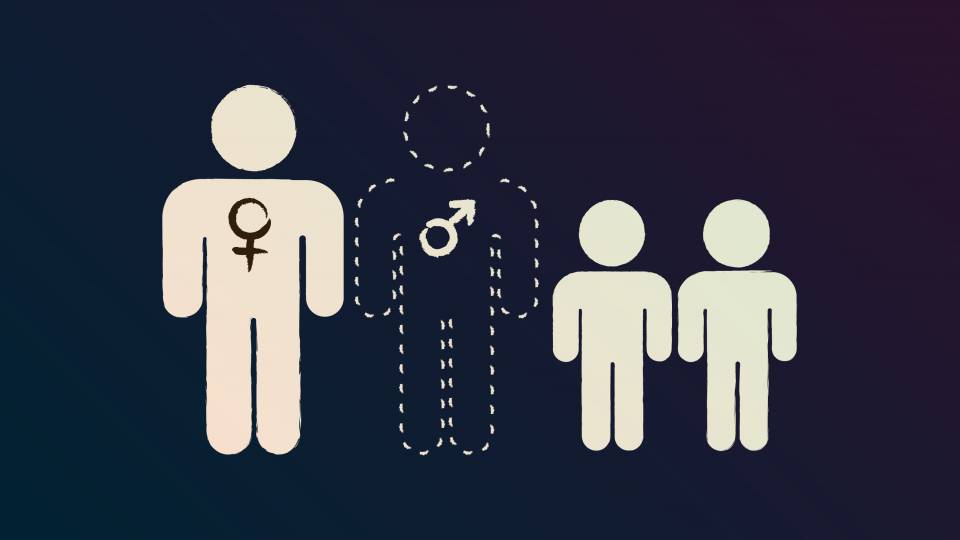A new study of "fragile families" in New York City concludes that most new unwed parents have stronger and more committed relationships than commonly believed, and that public policies should be adjusted to keep such families together.
Nearly one-third of all births now occur outside marriage, yet programs for these families often are based on unsubstantiated myths and anecdotal evidence, the researchers note. The new study, part of the multi-year "Fragile Families and Child Wellbeing" research project at Columbia and Princeton universities, provides reliable data for policymakers as they address welfare reform at the state and national levels.
"Without adequate information, such programs often are not effective and may even undermine the stability of the low-income families they are intended to support," said Irwin Garfinkel, a professor at the Columbia University School of Social Work and a co-director of the study. "We hope that our findings will help community leaders and policymakers design programs that meet the diverse needs of new, unmarried parents and strengthen fragile families in New York."
The study of New York families found:
7 Contrary to popular belief, unwed parents in New York are committed to each other and to their children at the time of birth. A full 86 percent of unmarried parents are romantically involved and 53 percent live together. Four-fifths of unmarried fathers provide financial support during the pregnancy, and the overwhelming majority of mothers want the fathers to be involved in raising their children. Most unwed parents have high hopes for the future of their relationships; 72 percent of the mothers, for example, say they are likely to marry their children's fathers.
7 Despite their high hopes, New York's unmarried parents are poorly equipped to support themselves and their children. Three-quarters of the mothers and 59 percent of the fathers earned less than $20,000 in the last year. About 44 percent of the mothers and 35 percent of the fathers lacked a high-school diploma.
7 Although most unmarried mothers in New York bear healthy children, one-quarter do not receive prenatal care in the first trimester and 7 percent have babies of below-normal birth weight.
The findings contradict negative stereotypes that portray unmarried parents as uncommitted and uninvolved. Welfare policies based on these stereotypes focus on mothers and children alone, instead of supporting entire families that want to stay together. "If a mother and father truly are indifferent to one another, it would make sense to treat them separately," said study co-director Sara McLanahan, director of Princeton's Center for Research on Child Wellbeing . "But if they have a relationship together and want to share responsibility for raising their child - as our findings show many do - then policies and programs should build on that connection."
The study also sheds light on the ways low-income, fragile families are coping with child-raising. More than half of new unmarried mothers reported that they live with another adult - but while this raises the household income, most of the families still live below or barely above the poverty line. The extended family is an important source of support for unmarried parents in New York: 46 percent of the mothers said they received financial support from relatives during the past year, 39 percent received a place to live, and 19 percent received free childcare. A substantial portion of unmarried mothers also rely on government support - primarily welfare, food stamps and housing subsidies.
Moreover, while recent changes in welfare policy have shifted much of the responsibility for assistance from the federal government to the states, unmarried parents in New York were largely uninformed about new welfare rules and regulations. Sixty-eight percent of the mothers did not know how many years a woman can receive welfare in New York (up to five years) and 70 percent did not know how long they can receive benefits before having to work.
"It is difficult to imagine that policies intended to encourage parental responsibility can be effective if the most likely recipients are not aware of them," McLanahan said.
The study is based on interviews with 384 new families in New York - 268 unmarried couples and 116 married couples. Interviews were conducted during the first six months of 2000. It is part of a national study that follows about 5,000 children and their parents.
In April, the researchers released findings from interviews with more than 4,000 parents in seven U.S. cities: Austin, Texas; Baltimore, Md.; Detroit, Mich.; Newark, N.J.; Oakland, Calif.; Philadelphia, Pa., and Richmond, Va.
Researchers in the Fragile Families project have called for changes in welfare, child-support and tax policies to policies to support unwed parents, particularly as the major welfare legislation of 1996, the Personal Responsibility and Work Opportunity Reconciliation Act, comes up for reauthorization next year. That legislation provided for the Temporary Assistance to Needy Families program, which requires welfare mothers to work and fathers to pay child support.
Specifically, the researchers have called for the elimination or reduction of marriage penalties in tax and welfare codes; child-support programs with realistic obligations on the fathers; and family support such as job training and drug and alcohol counseling.
"Programs for New York's fragile families should not come as 'one-size-fits-all,'" Garfinkel said, noting that there are indeed situations in which fathers should not share responsibility for child-raising. "We need to understand and address the diverse needs of parents and children - both those who want to remain together as a family, and those who cannot."
Contact: Marilyn Marks (609) 258-3601

